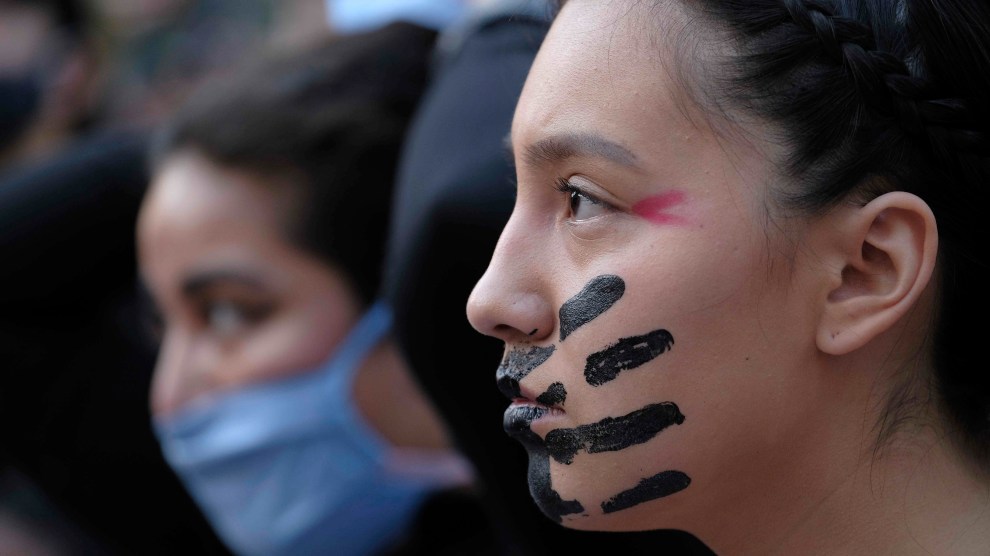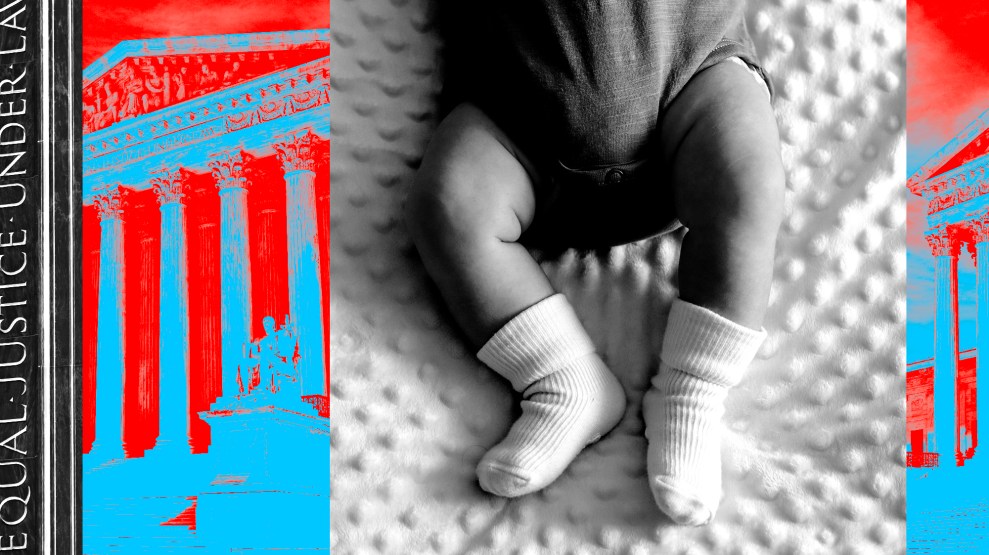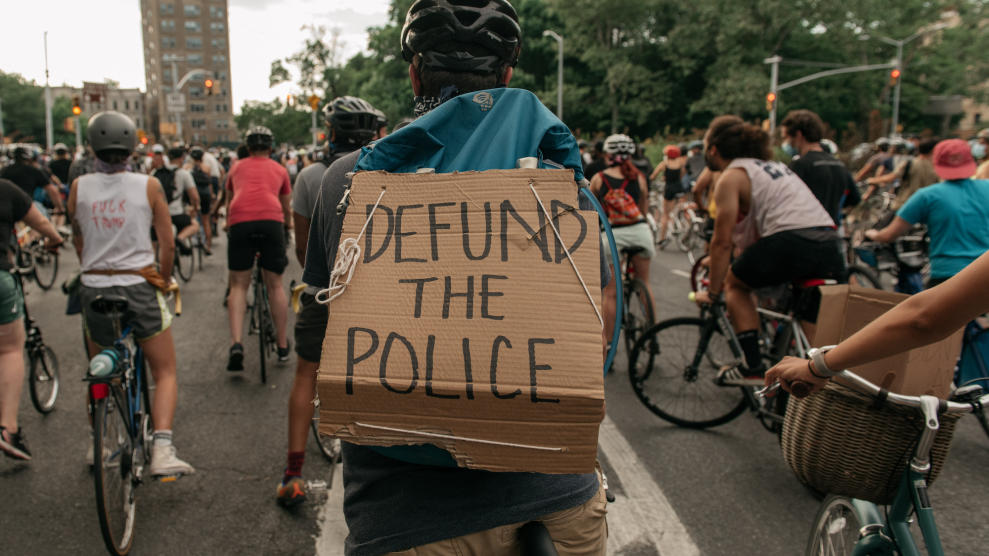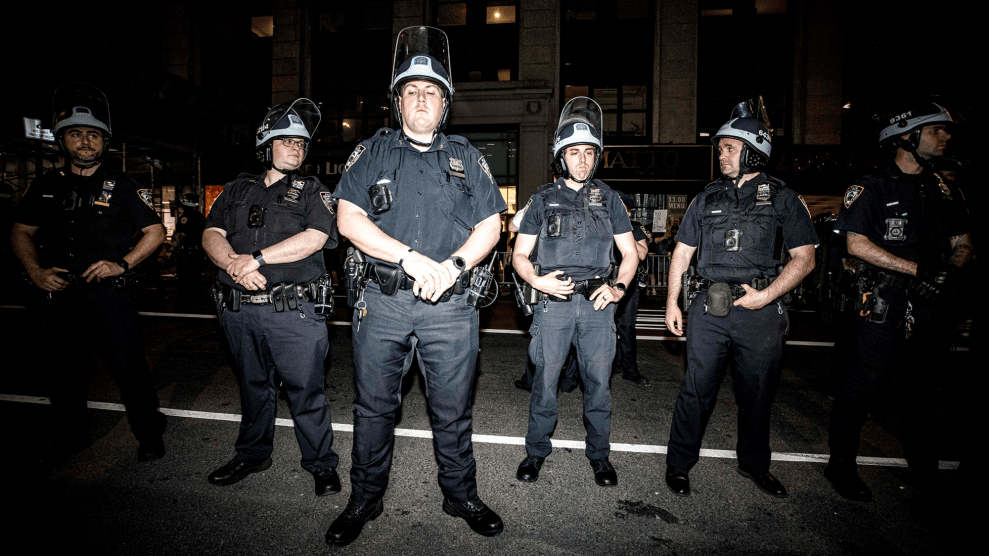
A protester in Portland in June 2020 who held a sign that said, "Natives 4 Black Lives Matter." Alex Milan Tracy/Sipa USA via AP Images
After George Floyd’s murder in 2020, Native Americans stood beside Black protesters in Minneapolis and called for changes to policing. Now, the Justice Department is highlighting how the city’s cops have been racist against them, too.
On Friday, the department released a blistering report showing that for years, the Minneapolis police have discriminated against Native Americans as well as Black residents, creating the conditions that led to Floyd’s death. The police are much more likely to stop and search people from both minority groups, the feds found, and to use force against them—especially in certain neighborhoods: In the Third Precinct, where many Native Americans live, the cops used force 69 percent more often during stops with Native Americans than in similar stops with white people from 2020 to 2022. They were 49 percent more likely to use force against Black people in the area.
The Justice Department’s emphasis on brutality against Native residents in Minneapolis is significant, because police violence against Indigenous people is a national epidemic that has long been overlooked. Around the country, Native Americans are killed in police encounters at higher rates than any other racial group, according to data from the Centers for Disease Control and Prevention, but these deaths often don’t get much media attention.
In Minneapolis, Native groups have a long history of fighting police brutality. In 1968, they launched the American Indian Movement, a national civil rights group that, among other activities, patrolled the city to document police brutality. Today there are at least 35,000 Native Americans in the Minneapolis-St. Paul metro area, according to the Minneapolis American Indian Center.
According to the Justice Department report, Native Americans make up a relatively small percent of Minneapolis’ total population—about 1 percent. But when you control for these population differences, the data shows that police pull over Indigenous residents at wildly disproportionate rates. Citywide, the cops are 8 times more likely to stop Native American people than white people (and 6.5 times more likely to stop Black people), according to data from the last five years. After making a stop, the cops were nearly 20 times more likely to search Native Americans than they were to search white people (and nearly 13 times likelier to search Black people). “The patterns and practices of conduct the Justice Department observed during our investigation are deeply disturbing,” Attorney General Merrick Garland said while announcing the report. “They erode the community’s trust in law enforcement. And they made what happened to George Floyd possible.”
Speaking to the Minneapolis Star Tribune, Rachel Thunder, a member of the American Indian Movement, said the report confirmed stories that she’s heard for years about racism against Native Americans in Minneapolis. Thunder herself was once arrested during a peaceful gathering. “I know from experience,” she said, that the Minneapolis Police Department “is weaponized against our freedom of speech and right to protest.”
President Biden described the Justice Department findings as “disturbing” and said they demonstrated a need for Congress to pass the George Floyd Justice in Policing Act, a bill that would try to reduce racial profiling and excessive force by police nationally. The city of Minneapolis, in response to the report, agreed to negotiate a consent decree that will likely require hundreds of changes to work toward these goals. But, as my colleague Eamon Whalen writes, consent decrees in other places have had mixed results and can take a long time to implement. Vanita Gupta, the associate attorney general, put it another way in a statement about Minneapolis: “Police reform does not happen overnight.”
Correction, June 20: An earlier version of this story quoted from a 2020 Mother Jones article that included an inaccurate statistic about the Native American population in the Minneapolis metro area. The quote has been deleted, and a better statistic has been added.













